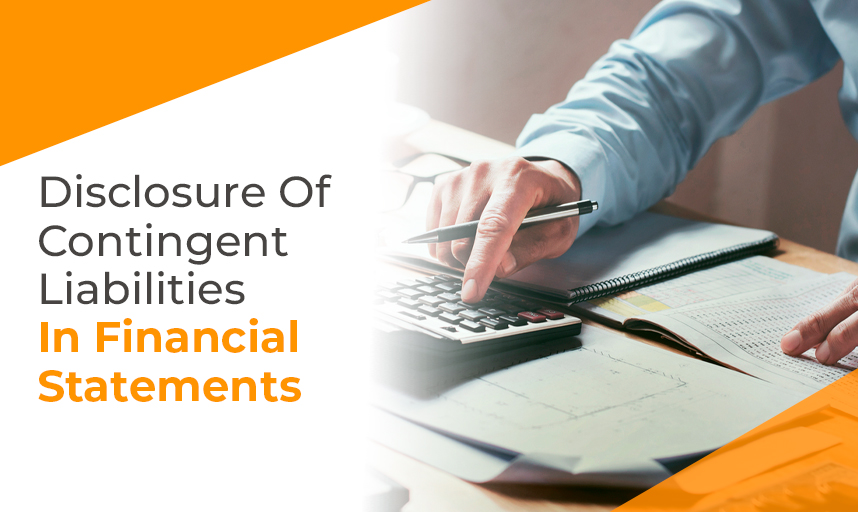Disclosure Of Contingent Liabilities In Financial Statements

Do you want to check out how companies keep their financial statements honest and transparent? Well, today we are going to explore a topic that might sound like a tongue twister: “Disclosure of Contingent Liabilities in Financial Statements.” But don’t worry, we are going to know this complex topic together, using everyday language that makes it crystal clear for you. So put on your thinking caps and let’s begin to learn more about this financial term.
What Are Contingent Liabilities?
In simple terms, contingent liabilities are potential obligations or debts that may arise in the future. They are called “contingent” because they depend on certain events occurring or not occurring. For example, these events can be disputes, warranty claims, environmental issues, or even the outcome of pending lawsuits.
Why Are Contingent Liabilities Important?
In light of this, you may be asking why these potential obligations are discussed. These are essential to financial statements since they have an effect on the overall worth and financial health of a firm. Even though they are undetermined at the time of reporting, these liabilities may have an impact on the company’s upcoming financial obligations. Businesses disclose them in their financial statements to give a thorough view of their financial situation.
How Are Contingent Liabilities Disclosed?
Well, to disclose them, companies have to follow certain guidelines and rules when it comes to disclosing them. These guidelines ensure transparency and help investors, shareholders, and other stakeholders make informed decisions. The following are two common ways in which companies can disclose these liabilities:
Footnotes
The companies give information in the footnotes section of their financial statements. Here you can find more details about the nature of the contingent liability, and its potential impact on the company’s financials. Along with this, readers can also know relevant information that can help readers understand the situation better.
Estimated Amounts
At times, companies may be able to estimate the potential financial impact of a contingent liability. In such situations, they can include these estimated figures in their financial statements, and offer stakeholders a better idea of the potential risks involved.
Why Is Disclosure Important?
Following are some of the key reasons why disclosures are important:
- Transparency: By disclosing contingent liabilities, companies show transparency and share a complete picture with stakeholders of their financial situation. Through this, the investors can assess the potential risks associated with these liabilities and make informed decisions.
- Comparability: By disclosing it, stakeholders can compare various companies in the same industry. They can check out and compare the potential risks and financial obligations of other companies, and then come down to their final decision.
- Risk Assessment: As stakeholders get a clear picture of contingent liabilities, they can assess the company’s ability to meet its financial obligations in the future. This is also helpful in gauging the level of risk involved and making decisions accordingly.
Conclusion
So now you have come to the end of this blog, we hope you understood what contingent liabilities are. As these potential obligations can impact companies’ financial health, it is critical to make the stakeholders aware of and present a clear view in front. And if you have any issues with that, you can contact KPG Taxation which has expert tax return accountants who can help you navigate this process.

Focus On Growing Your Business, Leave The Accounting On Us!
- Income Tax : File your taxes & get the best claims & returns.
- Accountancy : Hire expert accountants to manage your transactions.
- Bookkeeping : Let us handle your record books and expense reports.
- Business Advisory : From company set-up to payroll, we handle it all.



